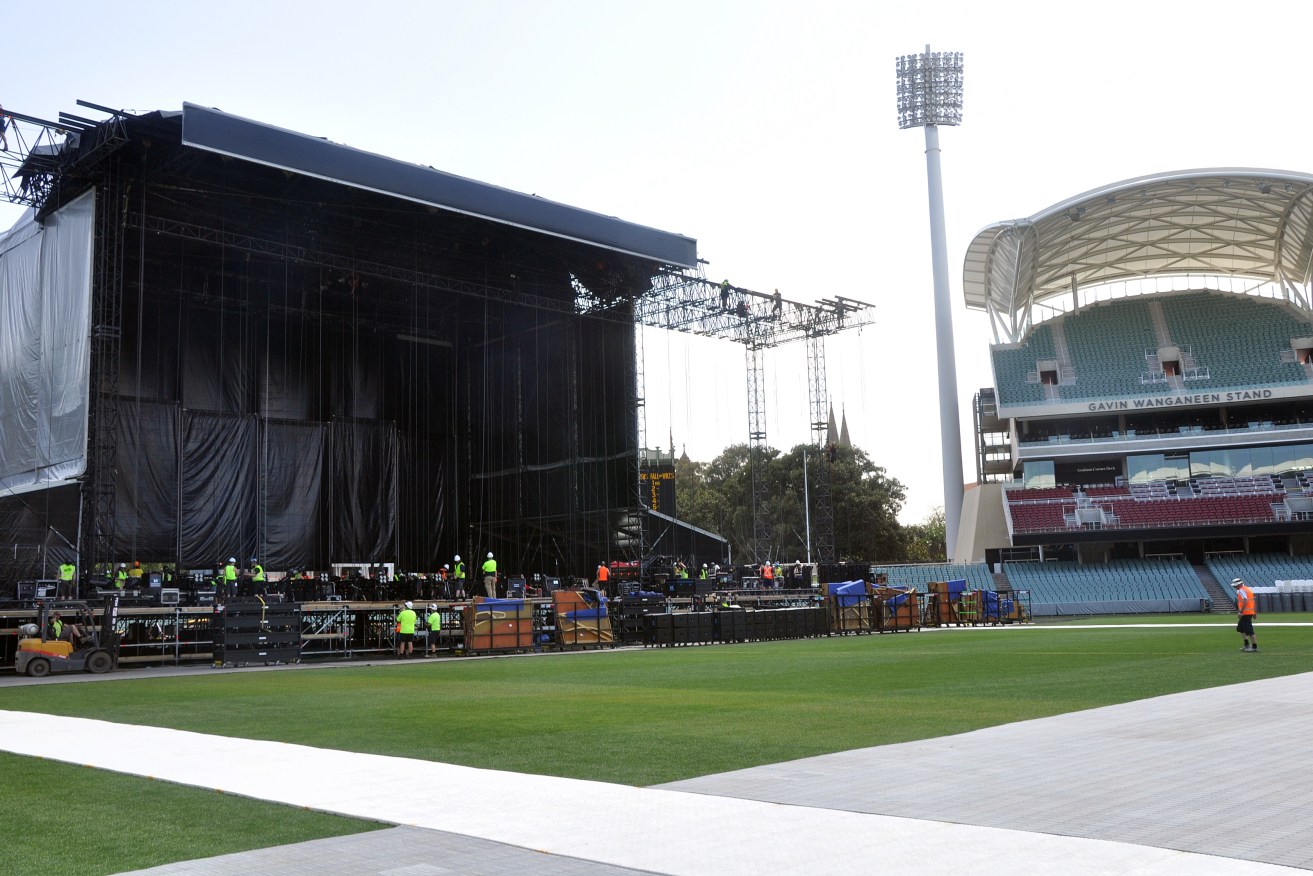Offshore ticket scalpers elude SA authorities
A state government crackdown on ticket scalping has largely been effective at protecting South Australian eventgoers, a new report has found, but overseas-based ticket scalpers remain a problem.


Concert preparations for the Rolling Stones, who performed in Adelaide in 2014 before the introduction of tighter ticket scalping laws. Photo: Margaret Scheikowski/AAP
The former Marshall Government passed legislation in 2018 which banned the resale of tickets to sporting and entertainment events at a price more than 110 per cent of the ticket’s original cost.
The amendments to the Fair Trading Act 1987, spearheaded by former consumer affairs minister Vickie Chapman, also prohibited the use of online ticket purchasing software and required resale advertisements to include details about a ticket’s original cost.
Chapman at the time cited the case of a 2017 concert featuring singer Adele at Adelaide Oval for which tickets were “selling at nearly 700 times their true value”.
A government-commissioned review into the effectiveness of the tighter laws, tabled in parliament on May 31, concluded the reforms have “increased consumer protection in SA”.
“The ticket scalping provisions have not eliminated the occurrence of ticket scalping entirely in SA, however this was not expected due to the inherent limitation of States and Territories seeking to regulate off-shore ticket scalpers,” the report found.
“Generally speaking, the legislation has been well received by stakeholders in terms of providing consumers with as much protection as possible from ticket scalpers.”
Consumer and Business Services (CBS), the government agency which compiled the review and is responsible for enforcing anti-ticket scalping laws, issued four $550 fines for illegal ticket resale activity between December 2018 and May 2021.
The majority of complaints made by consumers and investigations initiated against ticket scalpers relate to off-shore ticket scalping for events
The agency also reported handing out 70 formal written notices demanding the removal of a ticket resale advertisement, although said its overall compliance workload was decreased due to COVID-19 event restrictions.
The report stressed that the agency’s ability to crackdown on offshore ticket scalping has been limited.
“CBS has undertaken various enforcement action against illegal ticket scalping activity, however, this has not been without its challenges, particularly when attempting to combat ticket scalping activities by off-shore ticket scalpers,” the report states.
“The majority of complaints made by consumers and investigations initiated against ticket scalpers relate to off-shore ticket scalping for events held in multiple Australian jurisdictions.
“Without the ability to take strong enforcement action against these off-shore ticket scalpers, sales in the secondary ticket market have moved from Australian companies who are, for the most part, adhering to the law, to off-shore companies who are either unaware of the law or choose to ignore it.
“While CBS can commence legal proceedings against ticket scalping and advertising platforms under the FTA (Fair Trading Act), this process is timely and costly and public interest must be considered when a decision is made by a sole jurisdiction in Australia to commence a prosecution against an international ticket platform.”
The report recommended the federal government strike more agreements with other countries to crack down on ticket scalping but did not call for any changes to South Australian legislation.
“The successful prosecution of ticket scalping offences across international borders can only be achieved through bi-lateral agreements with the assistance of both the Commonwealth and the relevant international jurisdiction in each case,” the report states.
“This demonstrates the need for national consistency across all Australian jurisdictions.”




